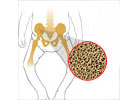A recent research finds that pregnant women who take an iron supplement twice a week receive the same health benefits as expectant mothers who take a daily dose of the essential mineral.

The findings, published in the PLOS Medicine journal, are a potential global game-changer for the way in which many people suffering from anemia are treated.
The side effects and costs of daily iron supplementation are often seen as a challenge to treating anemia.
The study compared findings from three controlled groups in a semi-rural region of Vietnam.
Some 426 women were given daily iron and folic acid supplements, another 425 twice weekly, while a third group of 407 were given iron, folic acid and micronutrients two times a week.
The researchers found similar birth weight for the women's babies in all groups, and there were also no differences in rates of premature births, stillbirths or early neo-natal death. At six months, there were no differences in the levels of infant hemoglobin, anemia or growth rates.
"We have shown that twice weekly antenatal (iron-folic acid supplementation) or (multiple micronutrient supplementation) in an area of Southeast Asia with low anemia prevalence did not produce a clinically important difference in birth weight or infant growth outcomes, compared to daily antenatal (iron-folic acid supplementation)," the study's authors reported.
The study was funded by the National Health and Medical Research Council of Australia.
Source-AFP
 MEDINDIA
MEDINDIA




 Email
Email








